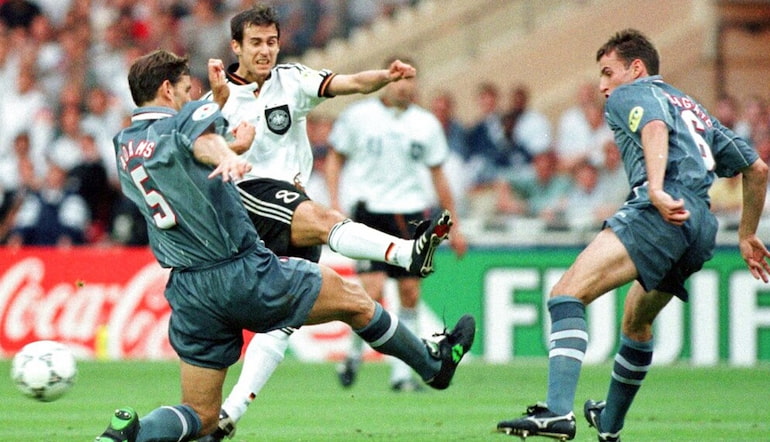This June, England take on Malta and North Macedonia in a brace of Euro qualifiers and the timing of the fixtures has necessitated Gareth Southgate to look beyond the usual suspects, to the periphery of his options.
Crystal Palace’s Eberechi Eze has been called up for the first time, a deserved reward for an outstanding second half to his campaign that saw him improve the Eagles’ football odds almost single-handedly, while Brighton’s Lewis Dunk would have surely added to a solitary cap he received five years ago were it not for a late injury withdrawal.
It is hoped that Eze features because it is always immensely satisfying when talents from beyond the ‘big six’ enjoy international recognition. Moreover, despite excelling in the top-flight, such players typically remain under the radar, again in part due to the club they represent.
It will be a thrill seeing the 24-year-old in an England shirt.

All of which explains the appeal of England B games, a concept that began in the late-Forties and ran intermittently for 57 matches in total, alongside full England fixtures until falling out of fashion in the mid-2000s, seemingly never to return.
Intended by its originator Walter Winterbottom to be a stepping stone to the national side, to afford players an opportunity to get acclimatised to the demands of international football, it was in reality never wholly about that. At least, not for the fans.
Instead, players who would ordinarily have not played for their country – despite having the attributes to do so - got to put on an England jersey and that was a gratifying sight to behold.
It was a chance to reward excellence displayed by those who perhaps were just half a level below established superstars but warranted recognition, nonetheless.
Ironically, no player better epitomised this than Steve Bruce, a defender who was surrounded by superstars at Old Trafford.
Despite winning three Premier League titles with Manchester United in the Nineties, Bruce had the misfortune of coming to the fore at a time when the Three Lions were well-stocked with brilliant centre-backs, from Sol Campbell to Tony Adams.

The tall defender therefore consistently found himself overlooked on the international scene, remaining uncapped throughout his trophy-laden career.
At least though there was an England B appearance, captaining them when starting out in 1987. At least there was that for a player who boasted more medals than half of the England first-team squad put together.
Others from that era who got to represent their country for England ‘reserves’ included Gary Mabbutt, Nigel Clough and Dalian Atkinson.
Switching our attention to the present day we find an abundance of players who similarly will likely never get a call-up from Southgate but who absolutely justify international recognition all the same.
Before we list them however, it is worth noting that the two reasons why England B games were scrapped in 2007 arguably no longer apply.
Because back then fixture congestion was a concern, and that is still the case today. But with World Cups played mid-season isn’t all betting off now regarding this? Besides, if there are international fixtures going on anyway, why not add B games to accompany them?
Moreover, it was felt in the mid-2000s that English talent was drying up, resulting from an increasing influx of foreign signings. Thankfully, that proved to be misplaced doom-mongering.
Because in Morgan Gibbs-White, Ben Mee, Solly March, Dwight McNeil, and Dominic Solanke, England possesses a wealth of fantastic players, who have lit up the Premier League yet will probably never play alongside Kane and co at Wembley.
Bring back the England B matches we say, that most gratifying of sights.
*Credit for all of the photos in this article belongs to AP Photo*


